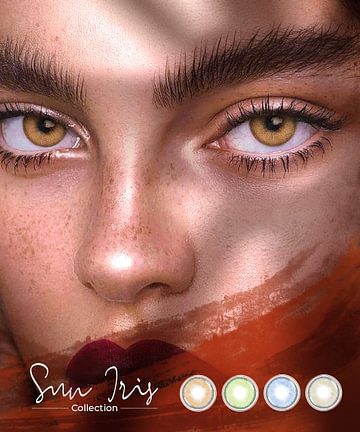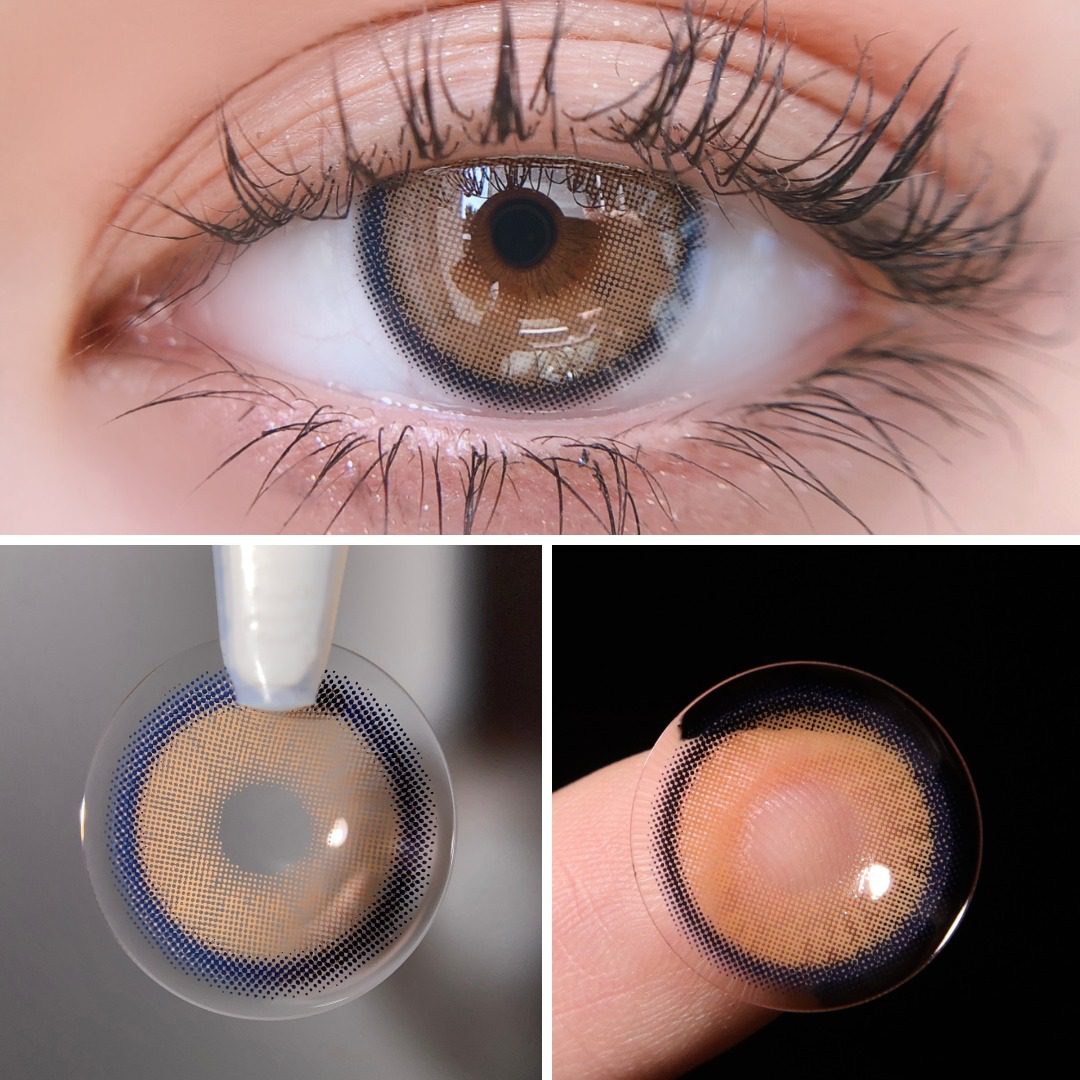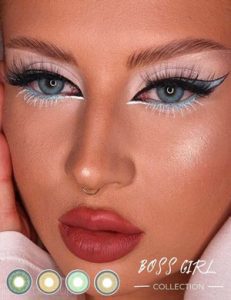
Base Curve and the Circle Lens Diameter
Posted by
Amy@Unicornsbeauty
On November 17, 2023
Comments Off on Base Curve and the Circle Lens Diameter

When choosing your favorite contact lenses, It is important for the buyer to know about two critical parameters the determine the fit and function of contact lenses: the base curve and the diameter as they play a vital role in ensuring that your contact lens experience is soft, effective, and safe.
The Base Curve
The base curve (often abbreviated as BC) refers to the curvature of the inner surface of a contact lens. The base curve is divided into the eye base curve and the lens base curve. It is a critical parameter when choosing contact lenses as it ensures the lens fits correctly on your eyes.
If the value of the base curve of the lens is larger than the base arc of the eye, it means the lens is loose, so it is unable to fit your eyes well, and it will be worn in the eyes, which will result in the phenomenon of lens shift, also called lens slippage. The value of the base arc of the lens is smaller than the base arc of the eyes, and your eyes will be uncomfortable when wearing the lens due to the feeling like the lens is tightening on the eyeball, thus causing an uneasy sensation and potential corneal stress.
Different eyes have contact lenses with varying Base Curve values, so choosing a correct Base Curve carefully is crucial for both contentment and vision correction when wearing contact lenses. Generally speaking, the base arc of lenses is about 8.5mm or 8.6mm, which is basically acceptable to all people.
How to measure the base curve of the eyeball? Measurement can be done at an eye clinic or a major eyeglass chain store by a medical professional. Only after the examination can you determine the true value of the base arc of the product for which you are suited.
The Diameter
Diameter refers to the width of the lens from edge to edge and is a critical factor in determining size, corneal coverage, and overall aesthetics. It is basically divided into the coloring diameter, which is the diameter of the patterned part, and the actual diameter, which is the diameter of the entire lens and is popular for its ability to enhance the appearance of the eyes by making them appear larger and more vibrant.
The choice of diameter for colored contact lenses can vary based on individual preferences and the specific look one wants to achieve. Some may prefer a more subtle and natural enlargement impact with smaller diameters, while others may opt for larger diameters to create a more dramatic, doll-like appearance. It ultimately depends on personal style and the look someone wants to achieve.
Therefore, It’s essential to consider the amenity, and vision when selecting a circle lens diameter to ensure both safety and the desired cosmetic effectiveness.
Unicornsbeauty provides 14 MM, 14.2 MM, and 14.5 MM of dia values, and you can choose your favorite values to buy suitable colored contact lenses.
- For individuals with smaller eyes, Unicornsbeauty’s BossGirl Blue contact lens is famous. 14.0 MM Colored Contact Lenses have a subtle enlarging effect on smaller eyes when worn, enhancing the natural eye color without dramatically changing the eye size, making it ideal for a more natural and everyday look.

- The diameter of the Sparklize Blue colored contact lens has a 14.2 MM diameter and an 8.6mm base curve, offering a slightly more noticeable enlargement effect, making the eyes appear slightly larger and more vibrant than 14 MM.
- Wildness Peacock Blue colored contact lenses feature a 14.5mm diameter and an 8.6mm base curve, providing a significant magnification effect that creates a bold and dramatic appearance, making the eyes appear more prominent and larger.
In short, the diameter affects how much of the cornea the lens covers. A larger diameter, for instance, 14.5 MM, can provide a more striking, dramatic look, especially in colored or cosmetic contact lenses. Conversely, a smaller diameter can show a more subtle and natural appearance.
Understanding and choosing the appropriate base curve and diameter of contact lenses is essential for a comfortable and effective contact lens experience. Whether for vision correction or cosmetic enhancement, choosing the correct base curve and diameter is the key to a successful and enjoyable contact lens experience.


 Gold
Gold